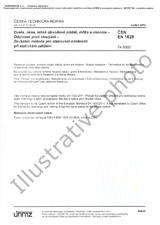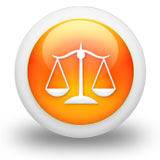We need your consent to use the individual data so that you can see information about your interests, among other things. Click "OK" to give your consent.
ČSN EN ISO 18589-3 (404015)
Measurement of radioactivity in the environment - Soil - Part 3: Test method of gamma-emitting radionuclides using gamma-ray spectrometry
Translate name
STANDARD published on 1.8.2024
The information about the standard:
Designation standards: ČSN EN ISO 18589-3
Classification mark: 404015
Catalog number: 519409
Publication date standards: 1.8.2024
SKU: NS-1192935
The number of pages: 52
Approximate weight : 156 g (0.34 lbs)
Country: Czech technical standard
Category: Technical standards ČSN
The category - similar standards:
Annotation of standard text ČSN EN ISO 18589-3 (404015):
This document specifies the identification and the measurement of the activity in soils of a large number of gamma-emitting radionuclides using gamma spectrometry. This non-destructive method, applicable to large-volume samples (up to about 3 l), covers the determination in a single measurement of all the ?-emitters present for which the photon energy is between 5 keV and 3 MeV.
Generic test method and fundamentals using gamma-ray spectrometry are described in ISO 20042.
This document can be applied by test laboratories performing routine radioactivity measurements as a majority of gamma-emitting radionuclides is characterized by gamma-ray emission between 40 keV and 2 MeV.
The method can be implemented using a germanium or other type of detector with a resolution better than 5 keV.
This document addresses methods and practices for determining gamma-emitting radionuclides activity present in soil, including rock from bedrock and ore, construction materials and products, pottery, etc. This includes such soils and material containing naturally occurring radioactive material (NORM) or those from technological processes involving Technologically Enhanced Naturally Occurring Radioactive Materials (TENORM) (e.g. the mining and processing of mineral sands or phosphate fertilizer production and use) as well as of sludge and sediment. This determination of gamma-emitting radionuclides activity is typically performed for the purpose of radiation protection. It is suitable for the surveillance of the environment and the inspection of a site and allows, in case of accidents, a quick evaluation of gamma activity of soil samples. This might concern soils from gardens, farmland, urban or industrial sites that can contain building materials rubble, as well as soil not affected by human activities.
When the radioactivity characterization of the unsieved material above 200 ?m or 250 ?m, made of petrographic nature or of anthropogenic origin such as building materials rubble, is required, this material can be crushed in order to obtain a homogeneous sample for testing as described in ISO 18589-2
Preview of the standard ČSN EN ISO 18589-3 (404015)
We recommend:
Updating of laws
Do you want to be sure about the validity of used regulations?
We offer you a solution so that you could use valid and updated legislative regulations.
Would you like to get more information? Look at this page.




 Cookies
Cookies
